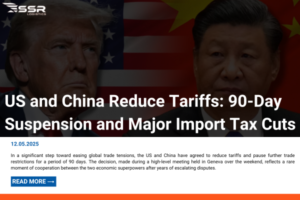The export of plant products from Vietnam to foreign markets such as the US, EU, etc. is increasing day by day. The Phytosanitary Certificate plays an important role in preventing the spread of pests through exported goods. Therefore, understanding the procedures for obtaining a Phytosanitary Certificate is essential for exporting businesses. This article will provide detailed information about the Phytosanitary Certificate, answer questions about application procedures, and assist exporting businesses in effectively complying with regulations.
What is an Import Phytosanitary Certificate?
The Phytosanitary Certificate for Imports is crucial in safeguarding national plant security and stopping the spread of plant pests and diseases through imported items. It is issued by the plant protection and quarantine authorities in Vietnam and is compulsory for businesses that import regulated plant products. Its aim is to ensure that imported shipments are free from pests or diseases, thus helping to protect agriculture and public health.
Import and Export Phytosanitary Certificates play distinct roles in pest management. While the Import Phytosanitary Certificate focuses on preventing pests from entering the country, the Export Phytosanitary Certificate ensures that exported goods do not carry pests to the destination country.
Businesses must have a good understanding of the phytosanitary certificate regulations for each type of imported product in order to apply for the certificate correctly.
Why is a Phytosanitary Certificate required?
Businesses must obtain a Phytosanitary Certificate when exporting regulated plant products. If a consignment lacks documentation proving it has undergone phytosanitary inspection, the competent state authorities will stop the customs clearance process.
Moreover, the purpose of phytosanitary inspection is to ensure product quality and prevent the introduction of pests to other markets. Therefore, obtaining a Phytosanitary Certificate is not only a legal obligation but also a measure to ensure the quality of exported goods and build trust with partners.
List of Products Requiring a Phytosanitary Certificate
List of imported products requiring a Phytosanitary Certificate
Under Vietnamese laws, the list of imported products requiring a Phytosanitary Certificate is classified into two main groups:
Group 1: High-risk plant pest products
- Seeds
- Plants
- Plant products (fruits, vegetables, fresh flowers, wood…)
- Packaging materials (wood shavings, bark, paper, cardboard…)
- Growing media
- Animals (insects, bees, honey bees…)
- Animal products (hides, fur, horns, hooves…)
Group 2: Medium-risk plant pest products
- Animal feed
- Fertilizers
- Pesticides
- Agricultural machinery and equipment
Before importing plant products or when negotiating contracts, businesses need to carefully check if the product is permitted for import into Vietnam.
In reality, many businesses importing plant-related products get stuck at ports due to lacking a Phytosanitary Certificate. This is a common mistake that can cause serious losses in costs and time for the business.
List of exported products requiring a Phytosanitary Certificate
Similar to imports, the list of exported products requiring a Phytosanitary Certificate is also classified into two main groups:
Group 1: High-risk plant pest products
- Seeds
- Plants
- Plant products (fruits, vegetables, fresh flowers, wood…)
- Packaging materials (wood shavings, bark, paper, cardboard…)
- Growing media
- Animals (insects, bees, honey bees…)
- Animal products (hides, fur, horns, hooves…)
Group 2: Medium-risk plant pest products
- Animal feed
- Fertilizers
- Pesticides
- Agricultural machinery and equipment
Businesses need to refer to the detailed lists in the relevant circulars of the Ministry of Agriculture and Rural Development to know exactly which products are subject to phytosanitary regulations for import or export.
Dossier for Applying for a Phytosanitary Certificate
According to regulations, the dossier for applying for an Import Phytosanitary Certificate includes:
- Phytosanitary Inspection Registration Form (per standard form)
- Copy, electronic copy, or original Phytosanitary Certificate issued by the competent plant quarantine authority of the exporting country (If submitting a copy or electronic copy of the Phytosanitary Certificate, the original must be provided before the Import, Transit, and Domestic Transport Phytosanitary Certificate is issued for the consignment.)
- Original, electronic copy, or certified copy of the Import Permit (if required)
Issuing Authority for Phytosanitary Certificates
Businesses can apply for a Phytosanitary Certificate at plant quarantine authorities. The Plant Protection Department under the Ministry of Agriculture and Rural Development manages 9 Regional Plant Quarantine Sub-Departments nationwide.
List of Regional Plant Quarantine Sub-Departments:
- Region 1: 2 Tran Quang Khai, Hai Phong City
- Region 2: 28 Mac Dinh Chi, Da Kao Ward, District 1, Ho Chi Minh City
- Region 3: 146 Hoang Dieu, Da Nang City
- Region 4: 66 Le Hong Phong, Quy Nhon City, Binh Dinh Province
- Region 5: 149 Ho Dac Di, Dong Da, Hanoi City
- Region 6: 28 Tran Phu, Vinh City, Nghe An Province
- Region 7: 98B Ngo Quyen, Dong Kinh Ward, Lang Son City
- Region 8: 007 Nguyen Hue Street, Lao Cai City
- Region 9: 386B Cach Mang Thang 8 Street, Can Tho City
Procedures for Issuing an Import Phytosanitary Certificate
To ensure exported goods meet the phytosanitary requirements of the importing country, businesses must follow the legal procedures to apply for a Phytosanitary Certificate. Below are the detailed steps:

Procedures for Issuing a Phytosanitary Certificate
Step 1: Register for Phytosanitary Inspection
The business submits 1 set of phytosanitary inspection registration dossiers to the nearest plant quarantine authority. The dossier includes:
- Application for Phytosanitary Certificate (per standard form)
- Consignment information declaration
- Commercial contract (or commercial invoice)
- Export permit (if any)
- Quality certificate (if any)
- Other relevant documents (if any)
Step 2: Receive and Review Dossier
The plant quarantine authority receives and reviews the validity of the dossier within 1 working day. Valid dossiers proceed to the next step, invalid ones are returned to the business with reasons specified.
Step 3: Inspect Consignment
The plant quarantine authority inspects the consignment at the location requested by the business (production facility, departure point, domestic storage, or border gate). The inspection includes:
- Physical inspection of the consignment to determine phytosanitary status
- Sampling for testing (if necessary)
- The inspection officer prepares an inspection record and notifies the business of the results
Step 4: Issue Phytosanitary Certificate
If the consignment meets import phytosanitary requirements
- The plant quarantine authority issues a Phytosanitary Certificate to the business within 1 working day after completing the inspection
- The Phytosanitary Certificate is valid for 6 months from the date of issuance
If the consignment does not meet the requirements
- The plant quarantine authority notifies the business and requires remedial actions
- The Phytosanitary Certificate will not be issued until the consignment fully meets phytosanitary requirements
Properly following the procedures to obtain a Phytosanitary Certificate helps ensure the business’s exported goods meet international phytosanitary standards, facilitating international trade.
Latest Sample Import Phytosanitary Certificate

Latest 2024 Sample Import Phytosanitary Inspection Request Form

Latest Sample Import Phytosanitary Certificate
Some Cases Requiring Notification to the Exporting Country or Relevant Agencies when Obtaining a Phytosanitary Certificate
To ensure plant security and effectively manage import/export activities, the regulations on notifications related to the Phytosanitary Certificate are specified in detail as follows:
Notification to Exporting Country
The Plant Protection Department is responsible for notifying the plant quarantine authority of the exporting country in the following cases:
- Detecting imported articles infested with quarantine pests, regulated non-quarantine pests of Vietnam, or other harmful organisms.
- Imported articles are not permitted entry into Vietnam.
- Imported articles lacking a Phytosanitary Certificate from the competent authority of the exporting country.
- Imported articles violating other phytosanitary import regulations of Vietnam.
The purpose of the notification is to coordinate handling, prevent the spread of plant pests, and ensure compliance with international phytosanitary regulations.
Notification to Owner and Relevant Agencies
The plant quarantine authority is responsible for notifying the owner or relevant agencies in the following cases:
- Similar to the cases requiring notification to the exporting country as mentioned above.
- When the consignment contains plant reproductive materials or beneficial organisms.
The purpose is to inform the owner of the consignment status, suggest appropriate handling measures, and ensure safety for production and business activities.
SSR Logistics – Reliable Customs Clearance Service Provider for Obtaining Phytosanitary Certificates
Importing and exporting plant-related goods always requires strict compliance with phytosanitary regulations. Obtaining a Phytosanitary Certificate is an important but complex procedure that is time-consuming and requires expertise. Understanding this, SSR Logistics was established with the mission of becoming a reliable partner to support businesses in obtaining Phytosanitary Certificates quickly, efficiently, and cost-effectively.
Why Choose SSR Logistics?
- Experienced team of professionals
- Streamlined processes
- 24/7 dedicated support
- Competitive Pricing

SSR Logistics Phytosanitary Certificate Service by SSR Logistics
The Phytosanitary Certificate service by SSR Logistics includes:
- Free consultation on Phytosanitary Certificate application procedures
- Assistance in preparing complete and accurate application dossiers
- Submission and tracking of Phytosanitary Certificate applications
- Advisory on handling issues if they arise
- Provision of import/export freight services
With SSR Logistics, you can rest assured about obtaining your Phytosanitary Certificates. We are committed to providing professional, reliable, and efficient services to help you save time and costs.
Through this article, SSR Logistics hopes that customers have gained an overall understanding of the phytosanitary certificate. For more articles, please visit our Logistics Knowledge section.
SSR looks forward to becoming your reliable logistics partner, providing optimal solutions for your importing and exporting business. Should you have any question regarding our services, please feel free to contact us for specific advice.
With our experienced team, extensive network and flexible shipping & customs solutions, SSR Logistics is confident to deliver excellent services to our clients.
Businesses that need customs and import-export, please contact SSR Logistics via Hotline (+84) 911 988 484 or leave your information here for specific advice.
With a modern warehouse system and experienced transportation staff, SSR Logistics provides a variety of additional services such as: customs clearance, warehouse leasing, domestic transportation, international transportation by sea and air, and international express delivery.









